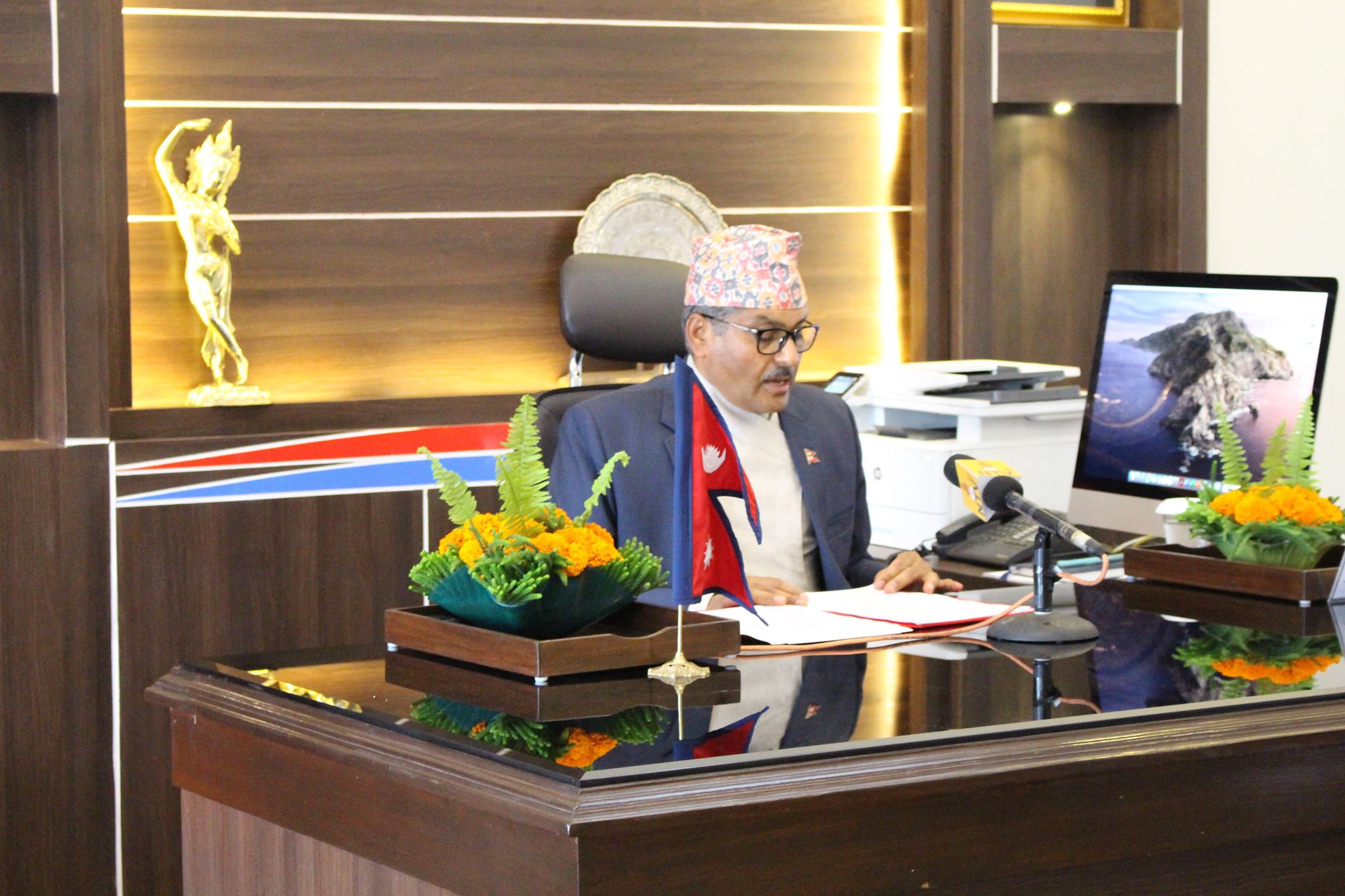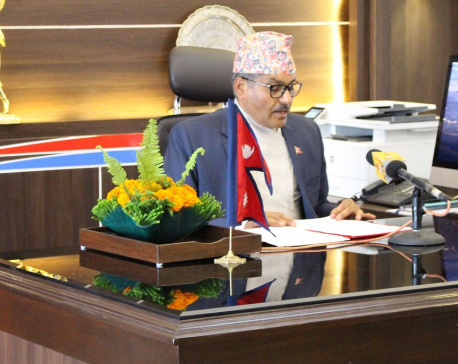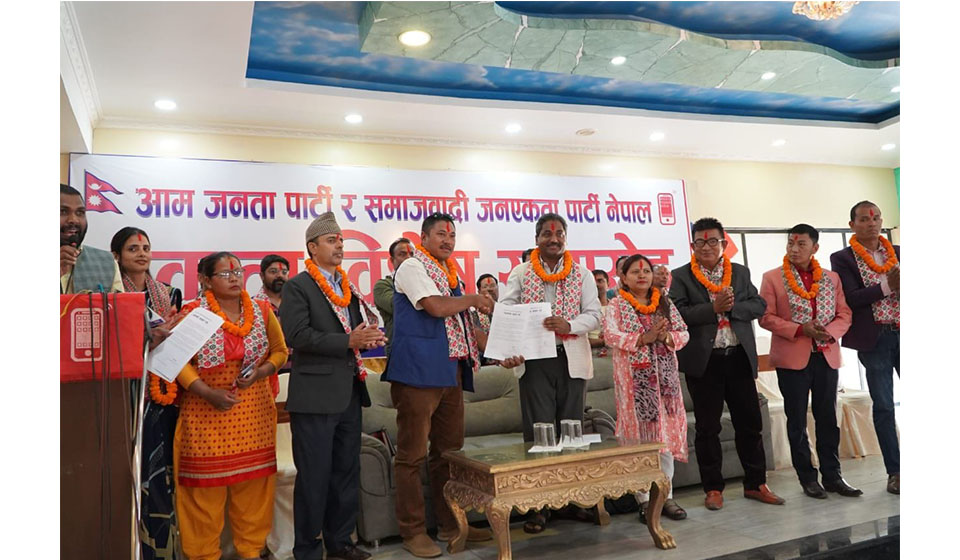
OR
NRB signals loose monetary policy for FY 2023/24
Published On: June 15, 2023 01:32 PM NPT By: Republica | @RepublicaNepal

KATHMANDU, June 15: Nepal Rastra Bank (NRB) has hinted at introducing a loose monetary policy for the upcoming financial year. NRB Governor Maha Prasad Adhikari conveyed this during an interaction held in Birgunj.
Adhikari, who faced criticism from the Ministry of Finance for bringing a tight monetary policy previously, is now advocating a policy that would be helpful for everyone. The private sector has expressed dissatisfaction, claiming that the policies under his leadership have contributed to a decline in industry, trade, and market activities.
Adhikari mentioned that the government aims to introduce a monetary policy that will achieve a six percent economic growth rate through the budget for the financial year 2023/24. "We will design the monetary policy to target economic growth, ensuring it facilitates all areas of concern," he stated.
Governor Adhikari further disclosed that the monetary policy is scheduled to be prepared in the third week of July. During an interaction organised by NRB's Birgunj branch to gather suggestions regarding the current economic and banking activities, he emphasized that the strict monetary policy of the past has helped improve the country’s foreign exchange reserves.
He clarified that the existing capital loan guidelines of 2079 BS introduced by the central bank are crucial, emphasising that his intention is not to trouble entrepreneurs but to enhance the credit system. He assured that NRB is always prepared to engage in constructive cooperation with the private sector. The governor also expressed dissatisfaction over the lack of efficiency demonstrated by commercial banks, which fell short of expectations.
Furthermore, Dr Subodh Kumar Gupta, chairman of the trade committee of the Federation of Nepalese Chambers of Commerce and Industry, raised concerns about the increased cost of capital due to high interest rates on loans, leading to a rise in illegal imports in border areas. He suggested reducing the burden of interest on loans, even if it involves lowering the interest rates on institutional deposits.
Similarly, Anil Kumar Agarwal, president of the Birgunj Chamber of Commerce and Industry, demanded an increase in the limit for Indian currency. The participants also complained that farmers and common people were compelled to pay higher interest rates to microfinance companies and cooperatives due to the reluctance of the commercial banks to provide loans easily.
You May Like This

If banks charge more than 16 percent interest, file a complaint, we will refund it: Governor Adhikari
KATHMANDU, Dec 2: Nepal Rastra Bank’s (NRB) Governor Maha Prasad Adhikari has encouraged people to report any instances of excessive... Read More...

NRB raises housing loan limit to facilitate house building
KATHMANDU, July 23: Nepal Rastra Bank (NRB) has introduced a progressive monetary policy for the current financial year 2023/24, aiming... Read More...

Economy is on the mend: NRB
KATHMANDU, Dec 1: Nepal Rastra Bank (NRB) Governor Maha Prasad Adhikari has said that the economy is improving. ... Read More...




Just In
- Sunkoshi-Marin Diversion Project’s tunnel construction nears completion, breakthrough scheduled for May 8
- Govt tightens security arrangement for Third Investment Summit 2024
- Pesticide residue found in vegetables in Nepalgunj
- Aam Janata Party and Samajwadi Jana Ekata Party merge
- 1,600 participants confirmed for Nepal Investment Summit
- Ilam-2 by-elections held peacefully, vote count likely to start tonight
- NEA schedules five-day power cut across Kathmandu Valley for underground cable installation
- Hundreds of passengers including foreign tourists in distress as poor visibility halts flights to and from PRIA







-1200x560-wm_20240427144118.jpg)





Leave A Comment